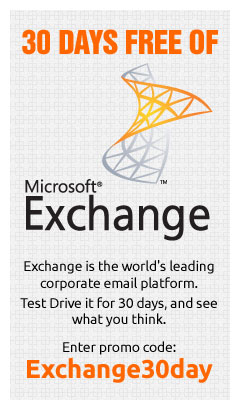 |
|

3 Quick Tips to Help Brand Owners Prepare for New gTLDs
Brand owners operating in the digital age should revisit and update their domain strategies before new gTLDs start populating the Internet. Many new gTLD registries are ramping up and preparing for the expected rapid release of hundreds of new domain extensions to the general public over the course of the next year. ICANN, the body overseeing the release of the new gTLDs, requires all new registries to include a “SunRise” registration period for trademark holders prior to the general release to the public.
The following 3 tips are essential to ensure your brand remains visible and protected in the new expanding Internet space:
-
1. Sign up with the Trademark ClearinghouseTo help mitigate incidence of cybersquatting, and to streamline the SunRise registration process, ICANN has introduced theTrademark Clearinghouse (TMCH). The TMCH supports a series of rights protection mechanisms designed to help brand owners easily secure their domains during the SunRise periods, but also carries over to post-SunRise registration phases. Then, potential registrations for a domain matching a brand registered in the TMCH will be presented with an advisory warning the user that the domain they are in the process of registering is trademarked and completing the registration could violate IP rights. Should the user complete the registration, the TMCH will automatically notify the brand owner of any new domain that has been registered using their mark under a new gTLD. This alerts the brand owner to take action to further protect the brand. Brand owners must submit their marks to the TMCH in order to register domains during the SunRise periods.
-
2. Make a Preliminary List of gTLD Strings to WatchIf you are a brand owner, you should be reviewing the list of new gTLDs that have been applied for and deciding on a list of gTLD extensions that you want to monitor. Our new gTLD WatchList service is the perfect tool to get this done. As brand owners decide on which new gTLDs to monitor, they will also have to track the SunRise periods applicable to each gTLD they are watching, making note of any additional requirements that may be applicable to those gTLDs. The good news is the WatchList will keep you notified of all these developments as they are announced, making your job easier to manage.
-
3. Defensive Strategies
With almost 700 new gTLDs becoming available to the public over the next two years, most brand owners will realize that the sheer volume of new gTLDs will require them to reconsider their defensive domain registration strategies. Since the majority of new gTLDs can be segmented into specific industries, geo-locations or niches, brand owners may want to consider which new gTLDs are directly connected to their industry and secure domains under the most relevant gTLDs. Again, our free WatchList service can help in this effort by sorting new gTLDs into any combination of 17 specific segment groups.

|
The launch of new gTLDs will be rapid, so brand owners should start planning and structuring their online brand protection and new domain registration strategies sooner rather than later.
For more info on these new gTLDs, and to stay informed on their releases, we invite you to log in to your new gTLD WatchList Portal.
Supporting Links:
TMCH
New gTLD WatchList
ICANN New gTLD Site
|
|
| Connect with us on social media
|
  |
|



|

Add Free Advance Applications on your Site
DomainPeople's hosted applications are easy-to-use managed software applications that can add sophisticated new functionality to your website. Our free applications can be easily added to your website though your existing SiteControl account in three simple steps – no technical experience needed!
Some of our most popular free applications include:
Content Management Systems: CMS's like Drupal and Joomla are ideal for creating and deploying projects such as commercial websites, corporate intranets and online publishing portals.
WordPress Blogging: WordPress is a state-of-the-art blogging and publishing system that is easy to use and allows you to set up and maintain your blog on the Internet. There are hundreds of interface themes available for WordPress, and new add-on modules are being released regularly and are free to use. All you need to create and manage your blog is a web browser and your imagination.
LimeSurvey: A fantastic survey system that allows you to develop and publish multi-question surveys online. In addition to a wide range of question types and presentation methods, LimeSurvey includes many features for survey branching, such as statistical analysis with graphs, conditional questions, exporting data to various formats and more!
Don't have a website yet? There's no better time than right now to get one of our flexible webhosting packages added to your account. We're currently offering a great promo where we'll discount our fees by 50% for the first three months, just add the promo code "DP503" when ordering online, or call our toll-free sales line directly at 1-877-734-3667. In addition to our promo, all our hosting packages include a 30-day money back guarantee!
|
|

Optimizing Your Content for Search Engines
In the realm of online marketing, many business owners believe advertising is the only way to attract prospects. Problem is, advertising can be more expensive than it’s worth. That’s why savvy business owners apply Search Engine Optimization (SEO) tactics to increase website traffic while keeping costs down.
The following five tips will give you the tools you need to maximize your SEO efforts:
1. Research and Identify Your Keywords
People are searching for your site with terms you may know, as well as some you may not. Make sure your website is optimized for exactly what people are using to find your website.
-
Discover how your prospects are searching for you – use Google’s free keyword tool (adwords.google.com) to find out what terms people use to find sites like yours.
-
Narrow down the list – take all the keyword terms you found in your research and make a list of the most searched terms. These are your main keywords to use throughout your website. Choose a few less-searched but more specific phrases to include as well – these terms will be less likely to be used by competitors and may drive fewer, but more qualified leads to your site.
2. Work Your Keywords into Your Content
To get your website (and pages) ranked high in search engine results, you must create content that is easy to read, informative and includes key words and phrases.
- Say it simply – you don’t need to have every keyword written into every sentence. Write your content as if you were talking to a prospective customer.
-
Don’t be repetitive – search engines will penalize you if they notice duplicate content on your site, e.g. two pages with largely the same content phrased the same way.
-
Take advantage of Web Analytics – use your website statistics to identify the pages people land on first, and optimize that content first.
3. Add Keywords to Your Tags Too
While the value of meta tags has decreased over the years due to changes in search engine algorithms, it is still recommended that you integrate keywords into your meta tags.
-
Meta keywords tag – this tag tells the search engine what your website is about based on your keywords.
-
Meta description tag – the short description you see in search results (also indexed by spiders) should include a short description of your website that includes your keywords.
4. Simplify Your Website Layout
Help the search engines help you by creating a website that is easy to crawl and navigate for both the search engine’s bots and your prospects.
-
Keep your website easy to explore – use simple navigation that doesn’t require more than 3 clicks to reach a call to action (such as clicking a ‘buy’ button or filling out a ‘contact us’ form).
-
Cross-promote your other pages – include links to your other service and product pages within your content.
5. Know What Not to Do
It may be tempting to try to pull one over on the search engines to influence the results, but these methods will only reduce your ranking, or worse, have your website banned from the results altogether.
-
Don’t overlink – avoid bulk linking, either from your site to other sites or vice versa. Links are good, but in reasonable numbers (not hundreds or thousands).
-
Don’t repeat keywords incessantly – using the same keywords over and over again in a single tag or sentence is known as ‘keyword stuffing’ and will not only confuse your prospects, it will signal to search engines that you have nothing relevant to say.
-
Never hide keywords – the search engines are now smart enough to recognize hidden keywords on your pages and will ban your website for such a practice (such as adding paragraphs of white text on a white background to your pages).
We're Here To Help
If you ever have any technical or billing issues with your account, remember that we are here for you. Contact our customer support team anytime!
Call us Now!
Toll-free North America: 1.877.734.3667
International: +1.604.639.1680
|
|
Domains Web Hosting Resellers FAQs |
|
Copyright © 2013 DomainPeople. All Rights Reserved | Privacy Statement |
|
|



